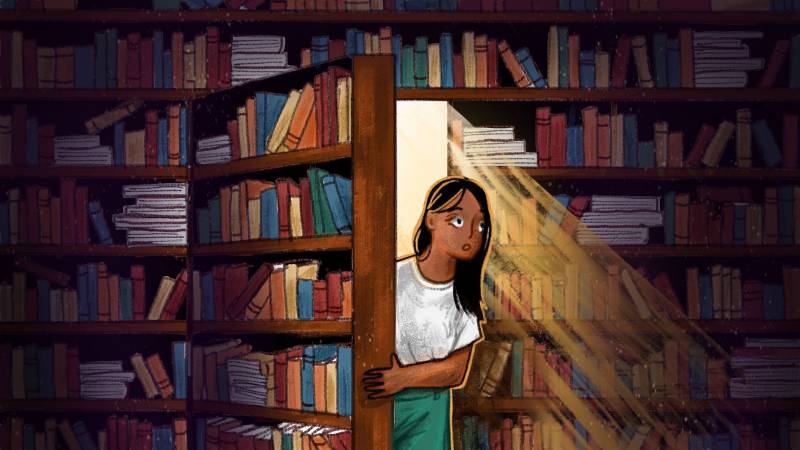In April, Ramirez finally caught a break. The San Diego Public Library wiped out all outstanding late fines for patrons, a move that followed the library system's decision to end its overdue fines. Ramirez was among the more than 130,000 beneficiaries of the policy shift, cardholders whose library accounts were newly cleared of debt.
The changes were enacted after a city study revealed that nearly half of the library's patrons whose accounts were blocked as a result of late fees lived in two of the city's poorest neighborhoods. "I never realized it impacted them to that extent," said Misty Jones, the city's library director.
For decades, libraries have relied on fines to discourage patrons from returning books late. But a growing number of some of the country's biggest public library systems are ditching overdue fees after finding that the penalties drive away the people who stand to benefit the most from free library resources.
From San Diego to Chicago to Boston, public libraries that have analyzed the effects of late fees on their cardholders have found that they disproportionately deter low-income residents and children.
"A form of social inequity"
Acknowledging these consequences, the American Library Association passed a resolution in January in which it recognizes fines as "a form of social inequity" and calls on libraries nationwide to find a way to eliminate their fines.
"Library users with limited income tend to stay away from libraries because they may be afraid of incurring debt," said Ramiro Salazar, president of the association's public library division. "It stands to reason these same users will also stay away if they have already incurred a fine simply because they don't have the money to pay the fine."
Lifting fines has had a surprising dual effect: More patrons are returning to the library, with their late materials in hand. Chicago saw a 240% increase in return of materials within three weeks of implementing its fine-free policy last month. The library system also had 400 more card renewals compared with that time last year.
"It became clear to us that there were families that couldn't afford to pay the fines and therefore couldn't return the materials, so then we just lost them as patrons altogether," said Andrea Telli, the city's library commissioner. "We wanted our materials back, and more importantly, we wanted our patrons back."
The Chicago Public Library started looking at data that showed socioeconomic disparities within its system. Telli said low-income communities had more overdue fines than some of the more affluent neighborhoods of Chicago. It wasn't that Chicagoans in poorer areas were necessarily racking up more fines, she said, but rather, those patrons were unable to pay the overdue balances.
According to Chicago Public Library's internal analysis, some 30% of people living on the South Side of Chicago couldn't check out materials because they had reached the $10 fine limit for overdue materials. That ratio, however, dropped roughly 15% among cardholders on the more affluent North Side. Nearly a quarter of blocked accounts belonged to children under 14.
Having library fines stand in the way of people searching for jobs and social services "just seemed counterintuitive to us," Telli said.

9(MDAxOTAwOTE4MDEyMTkxMDAzNjczZDljZA004))